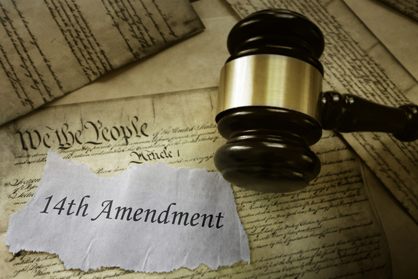Law firm Michael Best & Friedrich has prohibited its legal practitioners and staff from utilizing ChatGPT, an open-source generative AI tool, within their professional capacities. The firm’s decision stems from consultations with clients and feedback from its insurers, as confirmed by Sarah Alt, the Chief Process and AI Officer at Michael Best. The primary concern revolved around the potential risk that publicly accessible AI programs like ChatGPT could pose to the security of both the firm’s internal operations and its clients’ data privacy.
Alt expressed the pivotal query that prompted the decision: Can the firm harness the capabilities of these widely accessible AI tools while ensuring a secure environment for staff and clients? The resounding answer, according to Alt, was in the negative, especially considering that numerous client enterprises maintain a cautious stance toward ChatGPT due to data apprehensions.
However, other major players in the legal domain have adopted varying approaches. Some firms allow limited usage of AI technology within their workflows, while others opt to develop or acquire proprietary AI tools tailored to their specific needs.
See also: Embracing Technology: How Legal Professionals Can Leverage AI and Automation for Career Advancement
A prevailing consensus emphasizes the necessity of providing training for legal professionals and support staff to effectively leverage AI technology. Jeffrey Chivers, an instructor of an AI course at Yale Law School, underscored the growing importance of technical competence in the legal field. Given the inherently zero-tolerance nature of legal practice for errors, attorneys must deeply understand the technology they and their clients employ.
Trust BCG Attorney Search to connect you with top legal employers in your area. Search now!
Recognizing this demand, law firms are swiftly formulating comprehensive training programs despite the rapid evolution of AI technology. They aim to circumvent potential pitfalls, ranging from inadvertent exposure of sensitive client information to the dissemination of inaccurate content. An illustrative case involved AI-generated court documents with fabricated case rulings, leading to severe consequences for two lawyers in New York.
To equip their teams with the requisite expertise, some firms are organizing in-person seminars led by external experts and offering video-based tutorials through law firm training platforms. Orrick Herrington & Sutcliffe, in collaboration with tech training provider AltaClaro, is introducing a curriculum centered on “prompt engineering” across their firm. This curriculum focuses on refining queries to generate accurate AI-generated content and includes instructions on understanding generative AI systems, data privacy, accuracy verification, and related concerns.
While grappling with the integration of AI technology, multiple firms are in the process of drafting policies to mitigate the risks inherent in utilizing generative AI tools. BakerHostetler, for instance, issued a directive advising staff against deploying large language models in conjunction with client data due to potential privacy breaches.
Simultaneously, US law schools are acknowledging the growing student demand for updated courses encompassing rapidly evolving AI technology. Dyane O’Leary, Chair of the Association of American Law Schools’ technology, law, and legal education section, emphasized the need to accommodate this demand. To this end, she will teach a new course titled “Generative AI for Lawyers” at Suffolk University Law School. However, O’Leary acknowledged that despite the introduction of elective courses, there remains a gap in reaching all students, prompting considerations about integrating AI education into the core law school curriculum.
Highlighting the industry’s responsiveness to emerging trends, Arizona State University’s law school announced plans to permit prospective students to utilize chatbots for application preparation. Stacy Leeds, Dean of ASU Law, noted that firms actively seek candidates with familiarity and expertise in the AI space, further underscoring AI’s paradigm shift to the legal profession.
Don’t be a silent ninja! Let us know your thoughts in the comment section below.










































